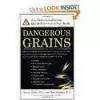-
Welcome to Celiac.com!
You have found your celiac tribe! Join us and ask questions in our forum, share your story, and connect with others.
-
Celiac.com Sponsor (A1):
Celiac.com Sponsor (A1-M):
-
Get Celiac.com Updates:Support Our Content
Enzyme Question
-
Get Celiac.com Updates:Support Celiac.com:
-
Celiac.com Sponsor (A17):
Celiac.com Sponsor (A17):
Celiac.com Sponsors (A17-M):
-
Recent Activity
-
- jjiillee replied to jjiillee's topic in Celiac Disease Pre-Diagnosis, Testing & Symptoms13
Daughter waiting for appointment
The ulcers are prepyloric ulcers. Not sure if that makes any difference. -
- trents replied to jjiillee's topic in Celiac Disease Pre-Diagnosis, Testing & Symptoms13
Daughter waiting for appointment
Duodenal ulcers are not uncommon either and often result from H.Pylori infections. https://www.healthdirect.gov.au/duodenal-ulcer -
- Scott Adams replied to jjiillee's topic in Celiac Disease Pre-Diagnosis, Testing & Symptoms13
Daughter waiting for appointment
I had what was termed "lesions," and normally ulcers are in the stomach, rather than the small intestines. I'm not sure why they would want you to have her continue to eat gluten, since she had a positive blood test, but as her doctor said, if she is uncomfortable and having symptoms why not have her go gluten-free at this point? If her symptoms improve,... -
- Scott Adams replied to cristiana's topic in Gluten-Free Recipes & Cooking Tips3
Christmas Cake
In the USA we also do a fruit cake that probably has UK origins, and my grandmother's always had lots of rum in it. I just found these:
-




Recommended Posts
Archived
This topic is now archived and is closed to further replies.